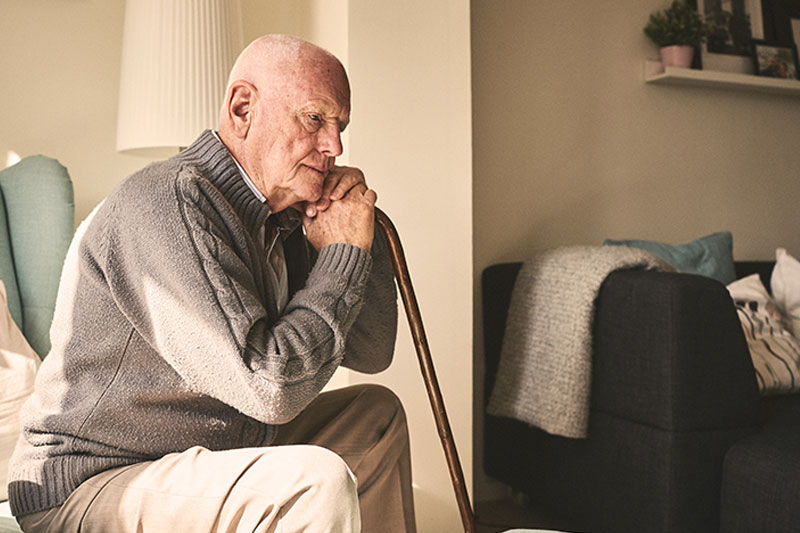
Elderly depression affects millions of seniors each year, and our experts in senior care in Waukee and surrounding areas can help.
After spending some time with relatives and revisiting beloved traditions and memories over the holiday season, it’s not unusual for a sense of nostalgia and sadness to emerge for the elderly. And while some extent of short-term post-holiday unhappiness can be anticipated, it is important to understand that it can develop into depression. Elderly depression is a serious psychological condition that is widespread among seniors, but is not a normal aspect of growing older.
How can you determine whether an older person you love has become depressed – and, what can you do to provide support?
First, it’s important to understand the risk factors for elderly depression, such as:
- Being lonely and isolated
- A sedentary way of life
- Stress
- Chronic health issues
- Sleeping problems
- Addictive Habits
- A family history of depression
If someone you love fits into some of those categories, or if you are simply worried that the senior may be on the verge of depression, watch for these red flags:
- Continual feelings of low self-esteem, anxiety, guilt, hopelessness, emptiness, or sadness
- Restlessness, fidgeting, or irritability
- A lack of interest in socializing or participating in previously-enjoyed activities
- Exhaustion and listlessness
- Changes to eating or sleeping patterns
- Problems with memory, decision-making, or concentration
- Thoughts or conversations around the topics of death or suicide
If you suspect depression in someone you love, do something immediately. Depression should never be brushed off as something the person has to “get over.” It is a chronic condition that requires medical help.
The physician will need to assess the senior, and can then come up with a treatment plan, which might include:
- Medications: There are effective medications available that can make a tremendous impact on how the older adult feels by balancing mood-affecting hormones.
- Counseling: A psychologist or other licensed mental health care specialist can help the individual talk through emotions and utilize treatment methods such as cognitive-behavioral therapy.
- Brain stimulation: If someone isn’t reacting well to standard depression therapeutic treatments, ECT or rTMS could be considered, which use electrodes or magnets to impact the brain directly.
There are things you can do to help prevent depression in the seniors you love, such as by encouraging:
- Socialization and involvement in enjoyable activities, such as exercise. (Participating with the older adult will offer extra motivation and support.)
- Following a healthy diet plan and getting at least seven hours of sleep nightly.
- Speaking up about their mental health worries and needs.
An in-home caregiving companion from At-Home Care Company, a provider of trusted senior care in Waukee, IA and nearby areas, can be incredibly helpful for seniors who are at risk for or experiencing depression. Our caregivers are thoroughly trained and experienced in meeting a wide range of senior care needs in the home, while providing the cheerful companionship to give socialization a boost and to bring a spark of joy to each day.
Contact our aging care experts at 515-292-2650 for a no-cost in-home consultation for more information on how we can help improve overall health and wellness for the seniors you love with individualized care in the home.
